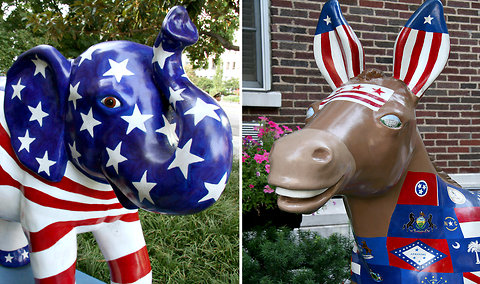“It’s important to tell our story, and I’d like people to hear directly from me,” Mr. Cook told a Senate panel during questioning by Senator John McCain, an Arizona Republican. Apple, he said, pays “all the taxes we owe — every single dollar.”
Rather than taking unfair advantage of what Congressional investigators say are a host of tax code loopholes, Mr. Cook said his company was actually a victim of an outdated tax system.
“Unfortunately, the tax code has not kept up with the digital age,” Mr. Cook said. “The tax system handicaps American corporations in relation to our foreign competitors who don’t have such constraints on the free movement of capital.”
On Monday, Congressional investigators unveiled a detailed report showing how Apple subsidiaries based in Ireland but spanning other regions had helped the company pay as little as one-twentieth of 1 percent in taxes on billions of dollars in income.
Mr. Cook sought to draw a sharp distinction between sales in the United States and those abroad, arguing the company had complied with local laws everywhere.
“The way I look at this is that Apple pays 30.5 percent of its profits in taxes in the United States,” he said. “We do have a low tax rate outside the U.S., but this is for products we sell outside the U.S.”
Again and again, Mr. Cook said Apple was proud to be an American company, even if the majority of its sales took place outside the United States and were taxed at lower rates. “We are an American company, whether we are selling in China or Egypt or Saudi Arabia.”
Before Mr. Cook and two other top Apple executives testified, however, other witnesses suggested Apple had pushed to take advantage of the tax code.
J. Richard Harvey Jr., a professor at Villanova Law School, estimated that Apple’s legal maneuvering had saved the company $7.7 billion in potential American taxes in 2011.
“Apple is an iconic U.S. multinational corporation that has enjoyed extraordinary financial success,” he said. “In addition to demonstrating excellence in designing, building and selling consumer products, Apple has been very successful at minimizing its global income tax burden.”
For example, in 2011, 64 percent of Apple’s global pretax income was recorded in Ireland, where only 4 percent of its employees and 1 percent of its customers were located, Mr. Harvey said.
While Apple has repeatedly insisted it does not engage in “tax gimmicks,” Mr. Harvey was dubious. “Apple does not use tax gimmicks? I about fell off my chair when I read that,” he said.
While Mr. McCain, the panel’s top Republican, and Senator Carl Levin, a Democrat, were critical of Apple, the company was not without its defenders on the panel.
“I’m offended by the spectacle of dragging in Apple executives,” said Senator Rand Paul, a Kentucky Republican. “What we need to do is apologize to Apple and compliment them for the job creation they’re doing.”
Instead of “bullying” Apple executives, Mr. Paul said, “we should have brought in a giant mirror to look at the reflection of Congress. If you want to assign blame, look in the mirror and see who created this mess.
“Apple hasn’t broken any laws, yet Apple is forced to sit through a show trial,” he said.
Mr. Paul’s comments drew a sharp response from Mr. Levin.
“Apple is a great company,” Mr. Levin said. “But they don’t have a right to decide in my book how much in taxes they are going to pay and to whom they are going to pay them.”
Article source: http://www.nytimes.com/2013/05/22/technology/ceo-denies-that-apple-is-avoiding-taxes.html?partner=rss&emc=rss
